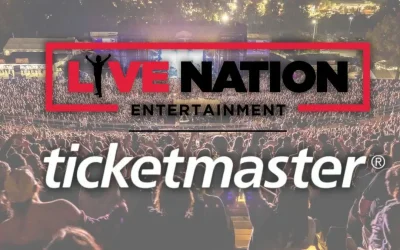New York State, one of the nation’s most active and lucrative markets for event ticket resale, could continue to be an open market for brokers and fans for two more years under a proposal to extend the state’s ticket reselling statutes.
The state began allowing unfettered ticket resale in 2007, with one of the most progressive laws in the country. Not only were restrictions lifted on how much a broker or person could charge for a resold ticket, sports teams could not punish fans who resold their season tickets through avenues not associated with the teams.
In addition, the New York law requires primary ticket sellers to disclose whether seats have obstructed views, and also prohibits primary sellers from selling or conveying tickets through a secondary ticket seller that they own.
State Sen. Craig Johnson, a Democrat, sponsored the extension bill, S06444, but he could not be reached for comment. Gov. David Paterson signed the previous, one-year extension into law last June, and that extension is set to expire in mid-May, so legislators could vote on the measure within the next few weeks and pass it onto the governor.
The decision to extend the law for another two years is backed up by findings in a recently released research report by the Secretary of the State’s office, which was commissioned by the legislature last year that looked at the state’s ticket reselling industry.
Among the key findings in the report was that price caps on how much a broker or fan can charge for a resold ticket seem to have little effect on ticket availability or their cost. Critics have long complained that allowing people to charge whatever they want inflates prices on the secondary market, but the report said while tickets are often more expensive when resold, general market forces have more influence on price.
“In comparing the availability and cost of tickets in New York State with that of other states where price caps in the secondary market are in effect, the Department failed to establish any causal connection between the existence of price caps and the availability and cost of tickets on the primary and secondary market. Price and availability of tickets on the secondary market appeared to be largely driven by market forces and prices on the secondary market were generally more expensive than the initial list price. The Department further determined that the removal of the price cap in New York has not prevented tickets to popular events from selling out quickly and has not prevented tickets from reaching the secondary market before tickets are released to the general public. The Department’s research determined that even in those states with a price cap on resale, the caps are largely ignored on the secondary market,” the report stated.
“Instead, the Department concludes that the most relevant factor in determining the price of a ticket on the secondary market is the degree to which the price on the primary market reflected the actual market value of the ticket. The establishment of ticket prices on the primary market that are below the true market value of such tickets in fact creates the opportunity for speculation and subsequent markups on the secondary market,” it continued.
In addition, the report found that removing price caps helped to legitimize the secondary ticket market, which provided jobs in the state and contributed to New York’s economy.
But the report also cautioned that there are still criminal elements associated with ticket resale that consumers should be wary of.
“The ticket resale market allows consumers unable to attend an event for which they have tickets to recoup their costs by selling the tickets to another consumer. Additionally, the secondary market provides a valuable service to tourists and visitors willing to pay a premium to purchase high-quality tickets to events on short notice. In fact, the resale market provides significant benefits to the hotel industry, which uses concierge-procured tickets as a selling point. In most cases, the secondary marketplace also offers a safe alternative to unlicensed street-based scalpers, against whom consumers have no recourse when sold fraudulent tickets. Any system that further restricts street scalping is typically viewed by local law enforcement as a positive benefit,” the report stated.
“However, the secondary market also provides a forum to capitalize on gaps between the face value of a ticket and its actual market value. The practice of assigning prices below market value creates a significant financial incentive for persons willing to speculate on tickets, as well as employees within the system looking to divert tickets to the secondary market for a fee. The secondary market itself acts only as the forum within which speculators and brokers can resell tickets at their actual market value. The high potential profit margins are the financial incentive that catalyzes competition for tickets on the primary market. This same phenomenon is equally responsible for the criminal diversion of tickets to the secondary market.
“For the consumer, this all makes obtaining a ticket at list price more difficult. In general, particularly for popular and sold-out shows, purchasing a ticket from a ticket reseller results in the consumer paying more for the ticket. But statutorily capping prices on the secondary market has been shown to have little effect in New York and other states,” it continued.



